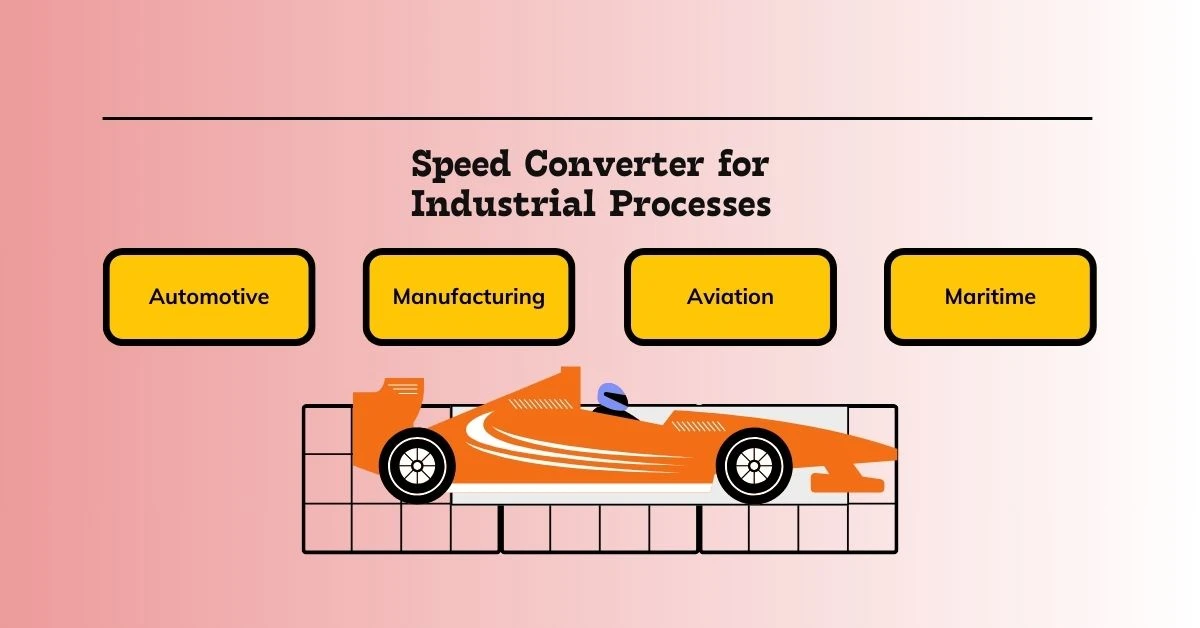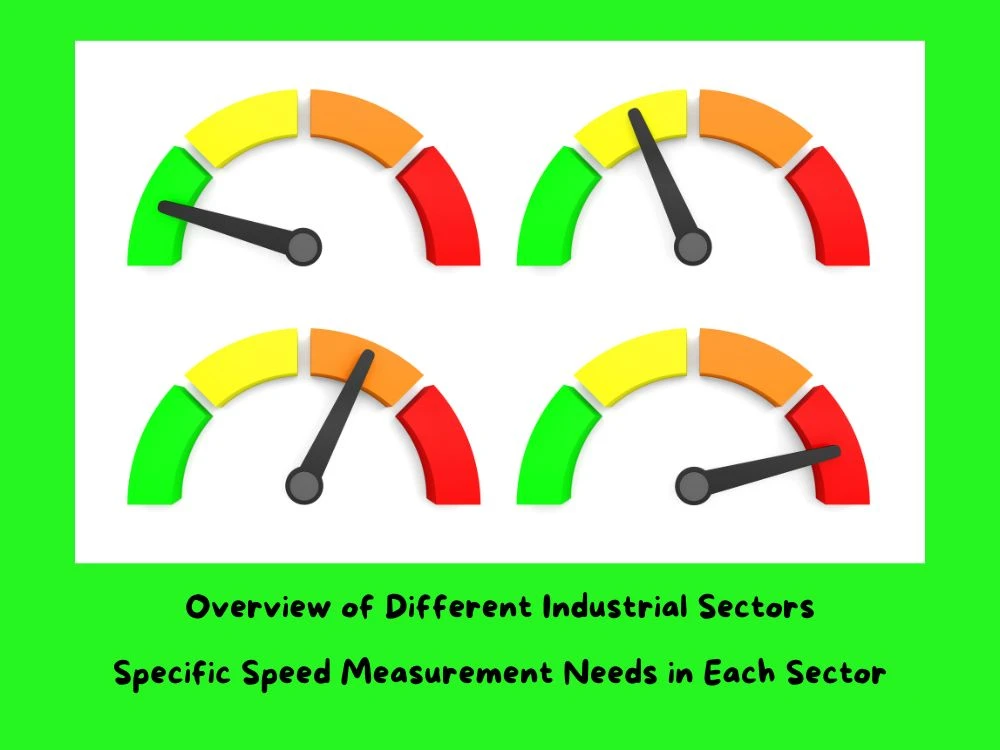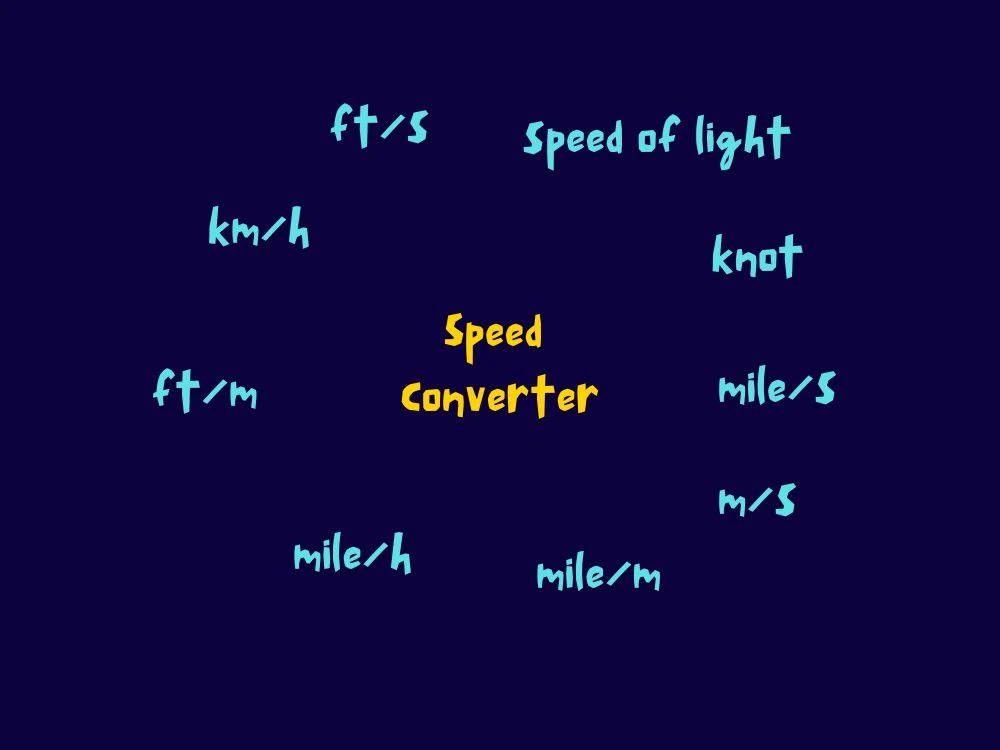
How to Use a Speed Converter for Optimized Industrial Processes
Have you ever worked in any industry that utilizes a speed converter in their operation? If so, you may have encountered the importance of utilizing the speed converter tool for precise speed measurements.
Many industries such as automotive, manufacturing, maritime, and several others rely on precise speed measurement for smooth operations. However, several speed-measuring units are available, and industries require accurate conversion between these units.
A speed converter tool accurately converts different speed units quickly. This tool is conveniently accessed online, and industries can effectively leverage it to streamline their operational workflow.
Key Takeaways
- Understand the industries and specific speed requirements for their operations.
- Understand a speed converter tool and a step-by-step guide to using it.
- Learn the practical applications of a speed converter in industrial processes.
Understanding Industrial Speed Requirements

A. Overview of Different Industrial Sectors
Industries like automotive, maritime, aviation, manufacturing, and many others require precise speed conversion measurements. Every industry has its unique characteristics and specific operational demands.
In this case, speed plays an important part in industrial processes such as ensuring safety, enhancing production efficiency, and many more.
B. Specific Speed Measurement Needs in Each Sector
Every industrial sector needs specific speed measurements. For example, the automotive manufacturing sector needs this to optimize the assembly line and ensure the production of quality vehicle components.
Similarly, the aviation industry requires precise speed measurements for calculating aircraft velocity, maintaining aviation safety, and determining fuel consumption rates. When it comes to the energy sector, speed measurement is crucial to monitor the rotational speed of turbines and other machinery that are vital for power generation.
Similarly, many other industries effectively use the tool to convert and understand various speed measurement units.
Understand the Speed Converter Tool

A. What is a Speed Converter
A speed converter is an online tool like the one we offer at Smart Tools AI which helps convert various speed units accurately and quickly. This tool is efficient for calculating the exact value of various units in real-time.
Industries can utilize this tool to measure several speed units such as foot per minute, foot per second, kilometer per hour, knot, Mach, meter per second, mile per hour, mile per second, mile per minute, nautical mile per hour, and speed of light.
B. Step-by-Step Guide to Using a Speed Converter
It is very easy to use the tool by following a simple step-by-step process:
- Navigate to the tool’s page at Smart Tools AI
- Select your preferred speed units in the “From” and “To” sections
- Enter the numbers and that’s it, you will get the conversion result displayed on the top.
Here, you can see the conversion process is simple by using the tool and you can unlimitedly utilize this tool for your industrial purposes.
Practical Applications of a Speed Converter in Industrial Processes

A. Automotive Industry
The measurement of speed in various units is crucial in the automotive industry for various applications. For example, converting vehicle speeds across different units to analyze the performance and check regulatory compliance.
For example, car manufacturing companies generally mention the vehicle speed potential in the specification details. For different market segments, car companies need to provide different specification details that align with their requirements.
For an easy understanding, the company has to specify the speed in miles per hour (mph) for the European and North American markets. On the other hand, for Asian and other markets they need to specify the speed in kilometers per hour (kph).
In this case, the speed converter tool is super helpful in converting speed measurements between important units. Let's say a specific car model manufactured for all markets by the company has a maximum speed of 130 mph. This has to be specified in kph for Asian and other markets.
Speed in mph = 130
One mph equals 1.60934 kph (approximately)
Speed in kph = 130 * 1.60934 = 209.22 kph
B. Aviation Industry
When it comes to the aviation industry, precisely calculating the aircraft speed is crucial. Therefore, aviation industry professionals use the speed converter which helps easily calculate the speed from one unit to another like knots to mph or kph.
For example, a pilot wants to convert the airspeed of the aircraft from knots to miles per hour for navigation purposes.
In this case, the aircraft's airspeed is 300 knots. To convert this speed to miles per hour the tool effectively helps. The calculation is as follows:
Speed in knots = 300
One knot equals 1.1507 mph (approximately)
Speed in miles per hour = 300 * 1.1507 = 345.21 mph
C. Manufacturing Sector
Generally, manufacturing sectors utilize the speed converter to convert machine speeds between different units. It helps them optimize the manufacturing process and to enhance quality control.
For example, a machine in a manufacturing plant operates at a speed of 1000 revolutions per minute (RPM), but for efficiency evaluation, the production team is required to analyze the speed in meters per second (m/s).
Speed in RPM = 1000
The conversion factor from RPM to meters per second depends on the machine's specifications and the diameter of the rotating part. Once the conversion factor is determined, the speed can be easily calculated in meters per second.
Through such conversions, manufacturing professionals can able to assess machine performance and make informed decisions to improve production efficiency.
D. Maritime Industry
The speed converter effectively helps calculate vessel speeds which is important for navigating through waterways in the maritime industry. For example, a ship's captain needs to measure speed in kph from knots to estimate the exact time required to reach the destination port.
If we consider the ship's speed as 20 knots. Using a speed converter, we can convert this speed to kilometers per hour easily:
Speed in knots = 20
One knot to kilometers per hour = 1.852 (exact)
Speed in kilometers per hour = 20 * 1.852 = 37.04 kph
Conclusion
As we see accurate speed measurement is crucial for various industrial processes. Different sectors like manufacturing, automotive, aviation, maritime, energy, and many others utilize a speed converter tool to precisely convert speed measurements between units.
This is helpful for industries to ensure safety and conduct industrial processes effectively. Moreover, industries can expand their global market operations and reduce inefficiencies by precisely calculating various speed measurements.
FAQ
Q1: Why accurate speed measurement is necessary in the automotive industry?
A1: The automotive industry deals with speed measurement to ensure vehicle safety, match the global market, optimize vehicle performance, and many more reasons.
Q2: How many mph is a knot?
A2: It is exactly 1.150702 mph in a knot. This calculation is important in different industrial processes.
Q3: Q: What is the speed measurement of m/s to mph?
A3: If you convert 1 meter per second (m/s) to miles per hour (mph), the result is approximately 2.237 mph.
Q4: How do you calculate km/h to m/s?
A4: To calculate, you have to select km/h in the “From” section and m/s in the “To” section and then enter the desired number. For example, if you enter 5 km/h then the tool converts it into m/s which equals 1.389 m/s (0.2778 * 5).
Q5: What is one kph equal to mph?
A5: If you convert kilometers per hour to miles per hour, the conversion result is approximately 0.621mph.
Q6: What is one ft/s to m/s?
A6: If you convert one foot per second (ft/s) to meters per second (m/s), it is equal to 0.3048.
.webp)